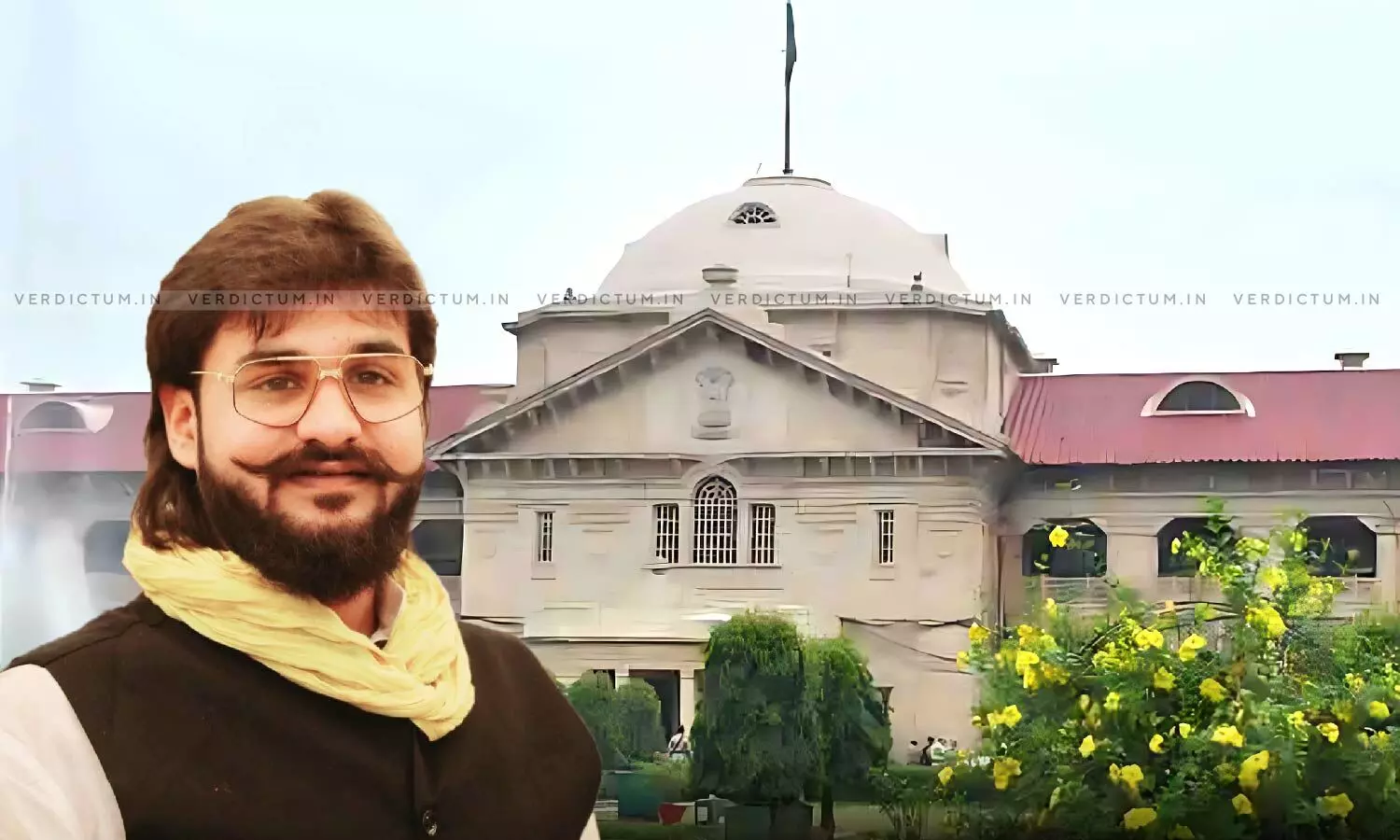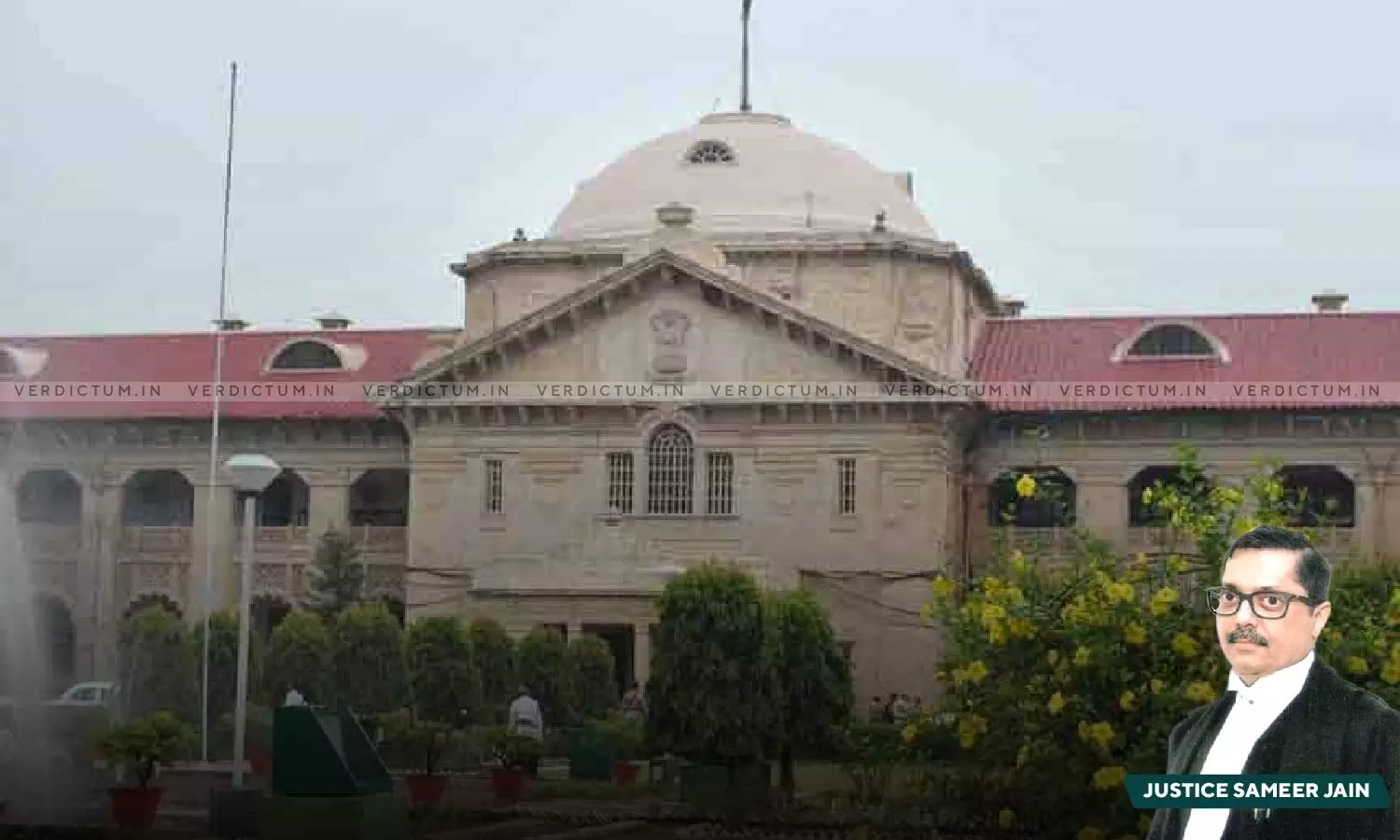
Refusal To Stay Conviction Would Amount To Injustice: Allahabad High Court Stays Conviction Of Abbas Ansari In Hate Speech Case
 |
|A Criminal Revision was filed by Ansari against the order of the Appellate Court refusing to stay on conviction passed against Ansari.
The Allahabad High Court stayed the conviction of Abbas Ansari during the pendency of the Appeal observing that the refusal to stay his conviction would amount to injustice not only to him but also to the electorate who elected him.
A Criminal Revision was filed by Ansari against the order of the Appellate Court refusing to stay on conviction passed against Ansari.
The Bench of Justice Sameer Jain observed, “Further, revisionist was a public representative and was a sitting MLA and at the time of election he was delivering the speech and although being MLA, he should restraint himself but merely on delivering such speech…refusal to stay his conviction in view of this Court amounts to injustice not only to the revisionist but also to the electorate who elected him. It appears, while refusing the prayer to stay the conviction, appellate court did not consider this aspect.”

Senior Advocate Upendra Upadhyay represented the Revisionist, while Advocate General Ajay Mishra represented the Respondents.
Case Brief
A Criminal Revision was filed by Ansari to quash the order passed by Appellate Court to the extent it refused the stay/suspension on the conviction passed against Ansari.
Ansari was a sitting Member of Legislative Assembly from Mau Constituency of Uttar Pradesh and he was facing trial for offences under sections 171F, 189, 153A, 506 and 120 B IPC. Ansari was convicted by the Trial Court. As a result, Ansari was disqualified as MLA.
The Appellate Court stayed the sentence awarded by the trial court but refused the prayer to stay the conviction. Hence, the Criminal Revision was filed by Ansari.
It was contended by Ansari that since he has been disqualified as sitting MLA for being convicted for offences under Section 171F, 189 and 153A IPC, thus, the case fell under the category of rare and exceptional cases and the Appellate court committed gross illegality for refusing to stay the conviction.
Court’s Analysis
At the outset, the High Court opined that the power to grant stay on conviction should not be exercised in routine manner and it should be exercised in rare and exceptional cases where due to his conviction appellant suffered with irreversible damages.
The question before the High Court was whether Ansari had the case to grant stay on his conviction order and whether while refusing his prayer to stay his conviction, the Appellate court committed any illegality or not?
Furthermore, the Court opined, “From perusal of Section 8 R.P. Act, it reflects that if a person has been convicted for an offence punishable under Section 153A, 171F IPC and even if his sentence is only of fine then also he shall be disqualified, therefore, for disqualification of a person from the post of member of Legislative Assembly even his mere conviction for offences under sections 153A, 171F IPC is sufficient irrespective of the sentence awarded to him.”
The Bench was also of the opinion that as Ansari has also been convicted for offence under section 189 IPC and two years sentence has been awarded to him therefore, by virtue of section 8(3) R.P. Act he has also been disqualified due to this reason.
The High Court observed that there was no other evidence against Ansari except the hate speech. “Considering the above speech, it appears, prima facie offence under section 153A IPC is not made out against the revisionist as on the basis of evidence produced by prosecution prima facie it could not be reflected that the act of the revisionist was either prejudicial to public harmony or could promote enmity between different groups which was necessary for offence under section 153 A IPC”, the Court said.
Similarly, the Court was of the opinion that the trial Court did not justify why it was necessary to award maximum sentence of two years to Ansari for offences punishable under sections 189 IPC.
The Court said, “Further, revisionist was a sitting MLA and due to his conviction in the present matter, he has been disqualified, and therefore, at one hand, his conviction deprived his constituency from legitimate representation and on the other hand, it also restrained the revisionist to represent his constituency, therefore, it cannot be said that the conviction of the revisionist does not cause any irreversible consequence.”
Due to the Ansari’s conviction for offences under Sections 153A, 171F and 189 IPC, he not only remained disqualified but he also remained disqualified to contest the future election.
“Further, however, the purpose of introduction of Section 8 R.P. Act is to resolve the issue of criminalization of politics and to depoliticizing criminality but while deciding the issue at hand, it is also necessary to consider the other facts and circumstances of the case like what are the actual allegations against the person who has been disqualified due to his conviction and whether his criminal antecedents of such nature which threatens the very idea of democracy”, the Court observed.
Thus, the conviction order passed by trial court against the revisionist shall remain suspended during pendency of his appeal before the Appellate court.
Accordingly, the Criminal Revision was allowed.
Cause Title: Abbas Ansari V. State of U.P & Anr. (Neutral Citation No. - 2025:AHC:143098)